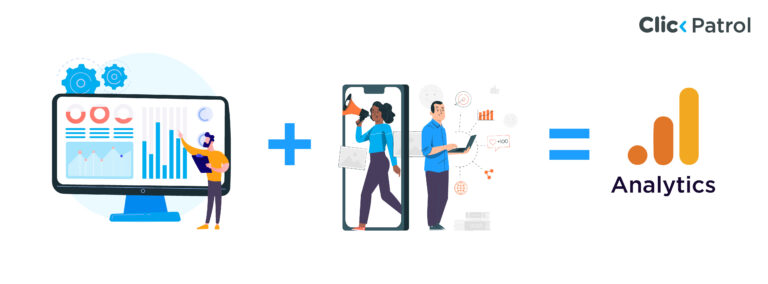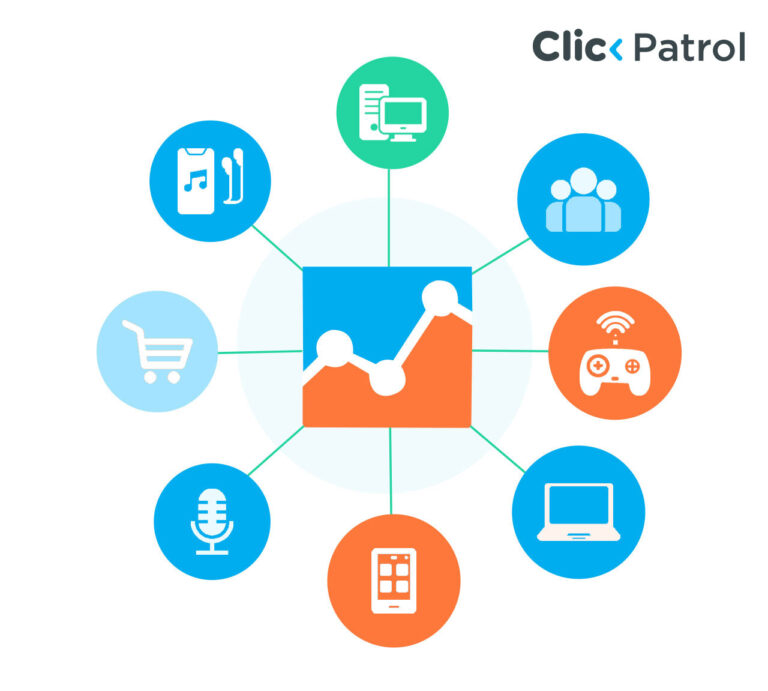
Top 8 Scraper Blockers to Protect your Website from Data Scraping
Abisola Tanzako | May 23, 2024

Websites are a vast data storage facility in today’s technological world, holding user-generated content, product information, and price information. This vast pool of valuable data has given rise to web scraping, a powerful tool that automates the extraction and aggregation of data from websites. It empowers businesses and individuals to gather information for various purposes, including market research, price monitoring, and content curation.
Table of Contents
- Understanding Scraper Blockers
- How Scraper Blockers Work
- Top 8 Scraper Blockers
- 1. Cloud-based Scraper Blockers:
- 2. On-premises Scraper Blockers:
- 3. Hybrid Scraper Blockers:
- 4. Specialized Scraper Blockers:
- 5. Machine learning-based Scraper Blockers:
- 6. Browser fingerprinting Scraper Blockers:
- 7. JavaScript-based Scraper Blockers:
- 8. Content delivery network (CDN) Scraper Blockers:
- What to consider when choosing a scraper blocker
- Benefits of using scraper blockers
- Limitations of Scraper Blockers
- Conclusion
- FAQs
However, the growth of web scraping has underlined the need for robust protective measures. Unchecked web scraping can lead to unauthorized data extraction and potential misuse. To counter this, scraper blockers have been developed. Website owners employ These tools or methods to prevent web scrapers from accessing their site’s data. Serving as a vital line of defense, scraper blockers safeguard websites against unauthorized data extraction, ensuring the integrity and security of their data.
Understanding Scraper Blockers
Scraper blockers are advanced security mechanisms that protect websites against web scraping activities. They employ various methods to detect and obstruct scraping bots, thereby safeguarding the website’s content, user experience, and server resources. These tools ensure optimal performance and security, permitting only legitimate users and authorized scrapers to access and extract data.
As web scraping becomes increasingly common, the necessity to shield websites and their valuable data has risen significantly. Scraper blockers are key in defending websites from unauthorized data extraction, ensuring user privacy, averting potential misuse, and preserving data integrity. By preventing unauthorized data extraction, businesses can retain their competitive edge.
How Scraper Blockers Work
Scraper blockers operate by recognizing patterns that are characteristic of web scrapers. These patterns can cover a variety of behaviors, such as an unusually high number of requests originating from a single IP address, atypical user agents, and rapid, successive requests. The techniques utilized by the scrap blockers form the backbone of their operation, ensuring the security and integrity of websites; they include:
1. IP blocking: A key function of scraper blockers is their ability to identify and block IP addresses linked to recognized scraping bots or exhibit patterns of suspicious activity.
2. Rate limiting: This method restricts the number of requests a particular IP address or user agent can make within a specified period. It prevents excessive data extraction, safeguards the website’s resources, and maintains performance.
3. User-agent filtering: Scraper blockers can analyze the user-agent strings of incoming requests. They can block those linked to recognized scraping tools or exhibit suspicious patterns, enhancing the website’s security.
4. Honeypot traps: Scraper blockers can establish decoy pages or data fields for bots to access. This strategy allows for the practical identification and subsequent blocking of scrapers, enhancing the website’s security.
5. Captcha implementation: Implementing captchas is a strategy that requires users to solve puzzles, effectively distinguishing between human users and automated bots. This makes scraper operations more challenging, thereby enhancing website security.
Top 8 Scraper Blockers
Scraper blockers come in a multitude of forms, each with its own unique strengths and specialized tactics. These different types can be effective in various scenarios, offering a broad spectrum of robust web scraping protection options. The choice of a particular type depends on the exact needs and resources of the website owner, ensuring that the most effective and suitable protection is implemented:
1. Cloud-based Scraper Blockers:
These services are based on a global network of servers, providing comprehensive protection against web scraping activities. They can effectively handle requests from various locations and IP addresses, making them an excellent choice for businesses with a broad geographic reach.
2. On-premises Scraper Blockers:
These solutions are installed and operated directly on the website’s servers. They offer the website owner greater control and customization features, making them particularly suitable for businesses with precise security requirements or those who prefer to manage their security measures in-house.
3. Hybrid Scraper Blockers:
These blockers combine the benefits of both cloud-based and on-premises solutions. They provide a versatile and customizable solution for defending against web scraping, making them an adaptable choice for businesses with diverse requirements and resources.
4. Specialized Scraper Blockers:
Some scraper blockers are tailored to specific industries or use cases, such as e-commerce, travel, or real estate. They provide targeted protection against scraping activities in these domains, making them valuable tools for businesses operating in these industries.
5. Machine learning-based Scraper Blockers:
These sophisticated scraper blockers employ machine learning algorithms to scrutinize and recognize patterns in web traffic and user behavior. With their continuous learning and adaptation capabilities, they can effectively detect and block complex scraping bots and evolving scraping methods.
6. Browser fingerprinting Scraper Blockers:
Browser fingerprinting is a method for identifying and tracking individual web browsers based on their unique attributes, such as browser versions, installed plugins, and system configurations. Scraper blockers that utilize browser fingerprinting can detect and block requests from recognized scraping tools or suspicious browser configurations.
7. JavaScript-based Scraper Blockers:
These types of scraper blockers use JavaScript to implement protective measures on the client side. They can randomize page content, obfuscate data, or implement challenges that necessitate user interaction. This makes it challenging for scraping bots to extract data accurately, providing an additional security layer against web scraping.
8. Content delivery network (CDN) Scraper Blockers:
CDN providers frequently include built-in scraper-blocking capabilities in their services. CDNs distribute content across a global network of servers, enabling them to identify and counter scraping activities through methods like IP filtering, rate limiting, and sophisticated traffic analysis.
What to consider when choosing a scraper blocker
When choosing a scraper blocker, several factors should be taken into consideration aside from your specific needs and circumstances before making a decision:
- Effectiveness: The foremost factor is the scraper blocker’s efficacy in stopping unauthorized data extraction. It should be able to accurately detect and obstruct attempts at scraping.
- Ease of implementation: The scraper blocker should be user-friendly and seamlessly integrated with your existing infrastructure. It should be fine with a high level of technical expertise or substantial resources for installation and setup.
- Customizability: It’s vital for a scraper blocker to offer the flexibility to adjust its settings based on your specific requirements. This encompasses the ability to modify the sensitivity of the blocker and tailor the responses to scraping attempts, among other customizable features.
- Reporting and analytics: Effective scraper blockers offer comprehensive reports and analytics related to scraping attempts. These insights can help you comprehend the magnitude of the scraping issue and evaluate the blocker’s efficacy.
- Cost: The expense of the scraper blocker should align with your budgetary constraints. You must account for the initial investment and the recurring maintenance costs.
- Customer support: Dependable customer support is crucial when setting up or troubleshooting the scraper blocker. It can provide invaluable assistance and guidance during these stages.
- Reputation: The scraper blocker’s reputation should be taken into account. Seek reviews or case studies that vouch for its effectiveness and dependability.
Benefits of using scraper blockers
Among the numerous benefits of scraper blockers are the following:
Enhanced user privacy: Scraper blockers are crucial in safeguarding user privacy. They deter scrapers that attempt to gather user data, thereby restricting access to sensitive or personal information. This ensures that the confidentiality of your website’s users is not compromised.
Maintaining website performance: Unregulated scraping can inundate your servers with requests, resulting in slow loading times and a subpar user experience. Scraper blockers prevent excessive requests from web scrapers, ensuring a smooth and responsive experience for legitimate visitors.
Protecting sensitive data: Websites often contain valuable information, such as product details, customer data, or proprietary research. Scraper blockers aid website owners in protecting this valuable data from unauthorized access and extraction, ensuring the security of their digital assets.
Enforcing terms of service: Many websites have terms of service that explicitly prohibit excessive scraping. Scraper blockers help implement these terms, allowing website owners to maintain control over how their data is used.
Resource conservation: Unchecked web scraping can consume significant server resources, leading to performance issues and increased operational costs. Scraper blockers help mitigate these issues by controlling access and limiting server load.
Legal compliance: Many websites have service terms that prohibit unauthorized data extraction. Scraper blockers assist website owners in adhering to these legal obligations, thereby protecting their intellectual property rights.
Competitive advantage: Website owners can secure their data from competitors or malicious actors to maintain a competitive edge and protect their business interests.
Limitations of Scraper Blockers
While scraper blockers provide substantial benefits in safeguarding websites and their data, they also come with certain limitations that website owners should consider:
1. False positives and legitimate traffic blocking:
Scraper blockers can occasionally misclassify legitimate user traffic as scraping activities, leading to false positives and inadvertently blocking authorized access. This can adversely affect the user experience and potentially deter genuine visitors or customers.
2. Complexity and maintenance:
Implementing and maintaining scraper blockers can be intricate, particularly for websites with high traffic volumes or complex data structures. Configuring and updating scraper blockers to stay informed of evolving scraping techniques and technologies necessitates dedicated resources and expertise.
3. Performance impact:
Scraper blockers can introduce additional computational overhead and latency depending on the methods utilized, potentially impacting the website’s performance. This impact could be more pronounced for environments with limited resources or websites that handle high traffic volumes.
4. Evasion by advanced scrapers:
While scraper blockers are designed to prevent unauthorized data extraction, advanced scraping tools and continuously evolving techniques may find ways to bypass or evade these protective measures. To stay ahead of these advancements, constant vigilance and updates from scraper blocker providers are required.
5. Legal and ethical considerations:
Scraper blockers may unintentionally restrict access to publicly available data or raise legal concerns about anti-competitive practices or violations of fair use principles. Therefore, website owners should carefully evaluate the legal and ethical implications of their scraper-blocking strategy. It’s essential to ensure that the implementation of such measures aligns with legal guidelines and ethical standards.
6. Financial and resource considerations:
Setting up and managing efficient scraper blockers can be expensive, mainly involving sophisticated solutions or specialized services. This could pose a significant challenge for small enterprises or organizations operating on a tight budget, as they may need help to afford comprehensive scraper-blocking systems.
7. Challenges with integration and compatibility:
Incorporating scraper blockers into an existing website structure, content management systems, or other security protocols can lead to compatibility issues. Guaranteeing smooth integration and preventing conflicts or performance degradation can be complicated.
Conclusion
Scraper blockers are vital tools in the digital world, providing robust protection for websites against unauthorized data scraping. They serve a dual purpose – safeguarding the website and its users and ensuring it operates smoothly. These tools are essential in today’s online world because they help keep critical information safe and ensure users trust websites. As technology keeps changing, it’s increasingly important to have good ways to stop scrapers. Website owners should check out different options for blocking scrapers because they can make websites safer and work better.
FAQs
Q.1 Can scraper blockers be bypassed?
Yes, scraper blockers can sometimes be bypassed. While scraper blockers are designed to prevent automated scraping activities, determined individuals or entities may find ways to bypass these measures. They might employ techniques like proxy servers, rotating IP addresses, mimicking human behavior, or developing custom scraping scripts to evade detection.
Q.2 What are some alternatives to scraper blockers?
Alternatives to scraper blockers include CAPTCHA challenges, rate limiting, User-Agent verification, honey pots, legal measures, content watermarking, data encryption, and dynamic content generation. These methods offer different ways to deter scraping activities and protect against unauthorized data extraction. They can be tailored to a website’s specific needs and vulnerabilities.
Q.3 Can scraper blockers completely prevent web scraping?
While scraper blockers are practical tools for deterring and mitigating unauthorized web scraping activities, they may not provide absolute protection against all forms of web scraping, especially those that employ sophisticated or constantly evolving techniques. It’s important to note that the effectiveness of scraper blockers is dynamic but requires regular updates and continuous monitoring.





